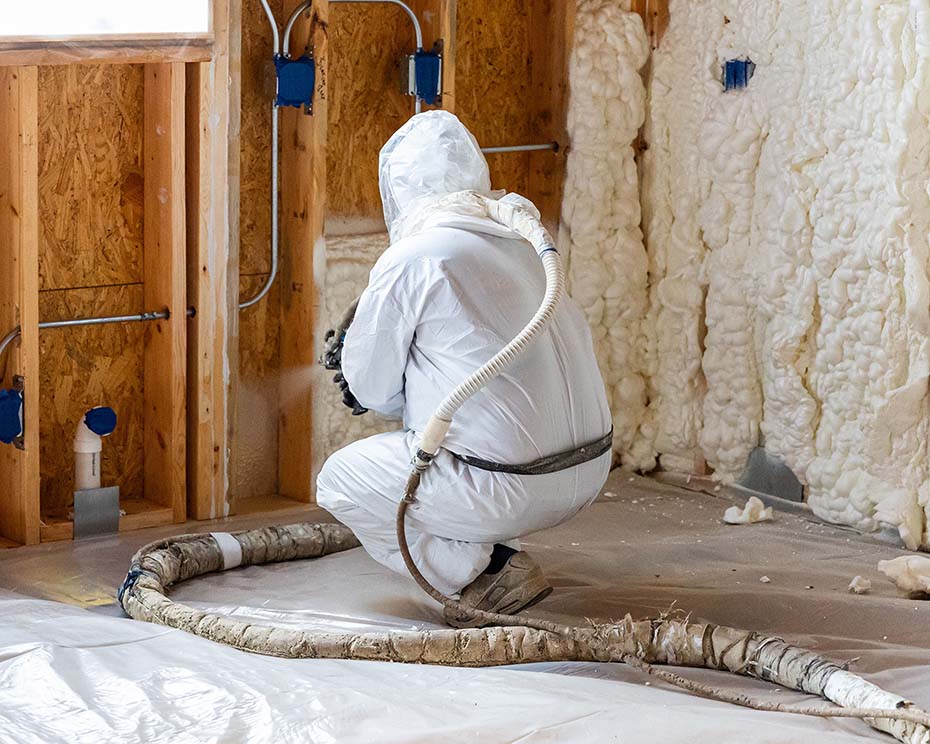Search for topics or resources
Enter your search below and hit enter or click the search icon.

When it comes to insulating your home, spray foam is one of the most effective materials available. But with so many insulation options out there, it’s natural to wonder if spray foam is the best fit for your specific needs. In this article, we’ll help you understand what spray foam is, its advantages, potential downsides, and situations where it might be the ideal choice for your home.
What is Spray Foam Insulation?
Spray foam insulation is a type of insulation that’s applied as an adhesive liquid that quickly expands into a solid foam. This foam fills up every crack, gap and crevice, creating an airtight seal that stops air and moisture from getting in or out. There are two main types of spray foam:
Spray foam offers several unique advantages over other types of insulation, like fiberglass or cellulose.
Spray foam provides some of the highest insulation power, with closed cell spray foam reaching R-values of around R-6 to R-7 per inch. This means it can help reduce heat transfer, keeping your home cooler in the summer and warmer in the winter. Because spray foam creates an airtight seal, it helps prevent drafts and makes your home more energy efficient. This can lower your energy bills, often making up for the higher upfront cost.
Closed cell spray foam is a vapor retarder, which is essential for areas that get damp, like basements and crawl spaces. Moisture can lead to mold and mildew growth, which can harm indoor air quality and damage your home over time. By reducing moisture movement, spray foam helps minimize these issues, keeping your home healthier and safer.
Closed cell spray foam has a rigid structure that can add strength to walls, ceilings, and floors. This extra reinforcement can be especially helpful in areas prone to strong winds or extreme weather, as it adds a layer of durability to your home’s structure.
Open cell spray foam is particularly good at absorbing sound, making it ideal for soundproofing walls and floors between rooms. This can be a huge bonus if you live in a noisy area or want to reduce sound transfer within your home.
When Spray Foam Might Be Right for You
Spray foam’s unique qualities make it a strong choice in certain situations. Here are some instances where it’s often the best option:
Potential Downsides of Spray Foam Insulation
While spray foam is an excellent insulation option, it may not be right for every situation. Here are a few reasons why it might not be the best choice for your home:
Is Spray Foam the Right Choice for You?
If you’re trying to decide if spray foam is the best choice for your home, ask yourself the following questions:
If you answered “yes” to most of these questions, spray foam may be an excellent choice for your insulation needs.
Conclusion
Spray foam is a versatile and powerful insulation option with benefits that include high energy efficiency, moisture resistance, and durability. It does come with a higher upfront cost, but many homeowners find the long-term savings and comfort are worth the investment. If you are unsure whether spray foam is right for your home, our team of experts can assess your space and recommend the best solution based on your specific needs.
Ready to explore if spray foam insulation is right for you? Contact us today for a consultation, and let’s get started on making your home as comfortable and energy efficient as possible.
Topics: